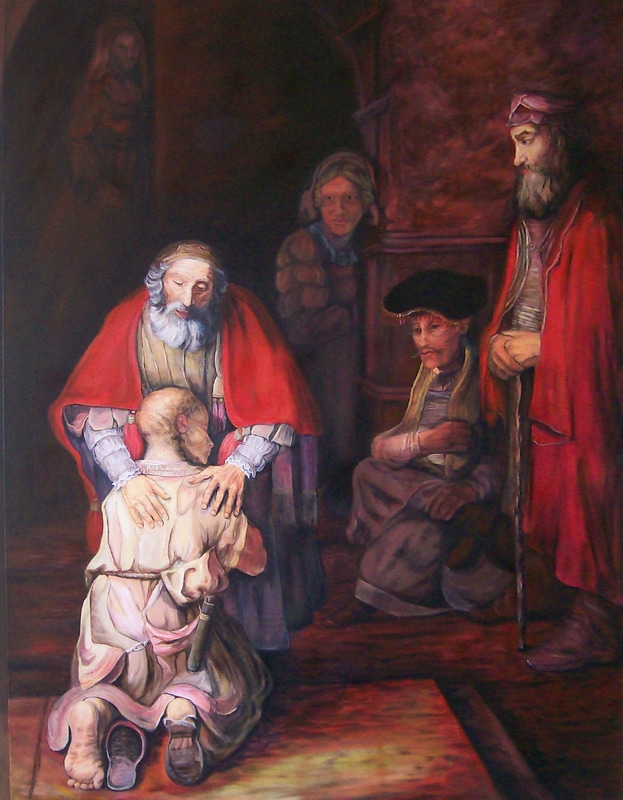The last one is about a person who goes off the rails and is famously called ‘the Prodigal Son’. ‘Prodigal’ doesn’t actually mean ‘lost’ but rather reckless, wasteful and self-indulgent especially with money. Which he certainly was, spending the family fortune on the services of prostitutes. Because he seems to have abandoned the morals he learned as a boy, some prefer to call the story simply ‘the Lost Son’.
But actually there were two sons in the account. When the ‘lost’ one gets welcomed home an older, obviously more respectable one, is disgusted and resentful and refuses to join the celebration. So maybe we should call the parable ‘the Unforgiving Brother’ or ‘The Two Sons’?
But the most dramatic character in the story is actually the boys’ father who, despite his own deep hurt and disappointment, ‘runs’ to welcome home the son who blew everything and has returned destitute, AND ‘goes out’ from the party to plead with his law-abiding son to come take his seat at the festivities.
The Father in the parable represents God Who loves us all deeply and desires all His children to share His table. We can break his heart by engaging in spectacular debauchery or by just hiding bitter pride and jealousy behind a respectable, even religious veneer. Sin takes many forms. The Father longs to forgive it all and welcome all safe home, even if we never seemed to leave or go that far. He wants us close at His side, close enough to see His smile, to feel His heart beating love for us and all His creation.
So maybe the real title of this story should be ‘the Parable of the Merciful Father’.
For whatever our lives are like, we all need His grace and mercy. We all need to find our ‘home’ in His never-ending love!

 RSS Feed
RSS Feed